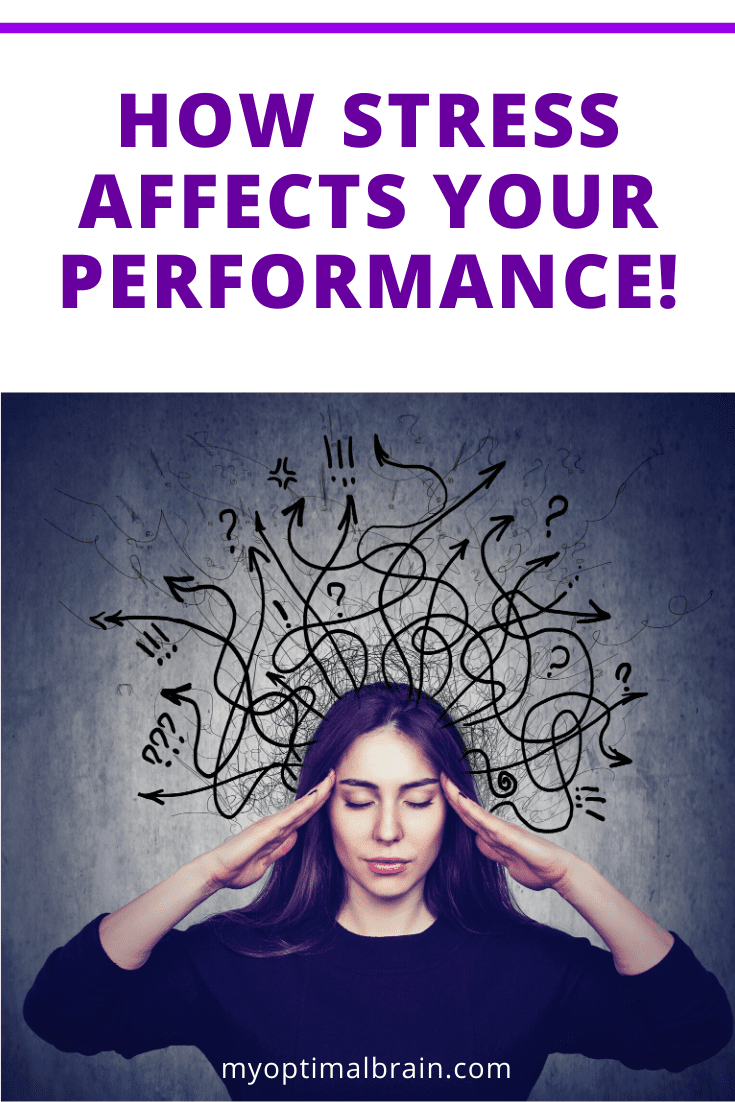Stress affects your performance, but there are ways to address it. Stress is a word we put on many things. Nonetheless, we always struggle defining it and recognizing its actual effects. It is a stimulus (good or bad) that creates pressure or tension in our daily life. The difficulty lies in how we manage it and return to a peaceful state. Stress affects your performance, but we have ways to combat this issue.

Types of Stress
Good stress is a stimulus created by a situation or issue whose beginning and end are identified. A solution to the problem can be quickly found and this stress may stimulate your abilities. On the other hand, bad stress is created by an issue that remains unresolved. It gives a sense of hopelessness and helplessness. When experiencing bad stress you may fill trapped as if your problems will never end. This is one way stress affects your performance.
Ways that Stress Affects your Performance
Stress arises when the brain switches to its survival mode. This can happen in many situations. For example you need to be productive at work, you need to resolve issues in your personal, social or work circle, or you face financial difficulties. Your brain will perceive these situations as a threat and will look for solutions to survive and protect you. Threats create fears that generate stress and anxiety. As a result, you do not sleep well at night, you lose your confidence or you do not want to take any risk anymore. Stress affects your performance and hinders your ability to perform and function efficiently in your daily life.
Stress can take many forms and each of us handles it differently. Stress can trigger cognitive, situational or emotional anxiety. Whether you are a business owner, a busy mom or a student, cognitive anxiety can arise, creating blocks. This type of stress appears when you have a hard time meeting expectations and reaching your goals. In the case of situational anxiety, you have difficulties to cope with family members or co-workers. You do not know how to correctly handle these relationships. Emotional anxiety is a third type of stress that is triggered by an emotional distress that your brain can not effectively address.
Fears feed your stress that will exemplify your fears. This vicious cycle makes everything worse than it is. Fears become out of proportion and you are not able to find solutions to your problems. All of these situations create blocks that prevent you from accessing your thinking, frontal brain.
Real Life Solutions to Address Stress
Lisa was diagnosed with a cancer and naturally this scared her. Although she has now recovered, the trauma of facing cancer had created a stress that prevented her from functioning optimally. She came to InnerOptimal, Inc. as her fear had taken over her ability to work as an executive.
Thanks to InnerOptimal program, she learned the underlying reasons of her problems. Part of the healing process is to understand better how the brain functions. Thus we use an assessment tool that provides vital explanations. Lisa’s brain map clearly showed the imbalance between her three brains (the survival brain, the emotional system and the thinking brain) and how her trauma was affecting her life. InnerOptimal program helped Lisa restore balance in her life by clearing and stimulating her brain. She recovered neuroplasticity that allowed her to access her thinking brain, freeing her from stress and fears.
Stress affects your performance, but it does not have to. We offer a variety of brain training solutions to help you conquer stress. Contact us to discuss how we can help you beat stress and live life to the fullest.





